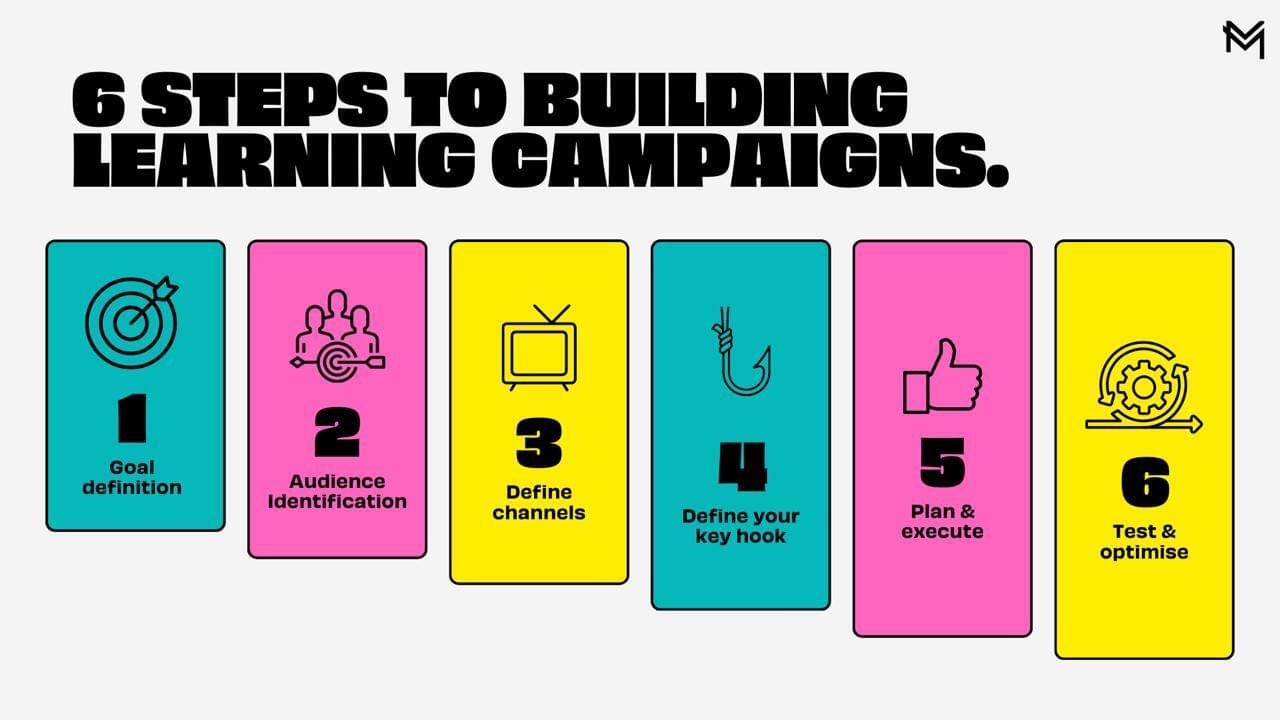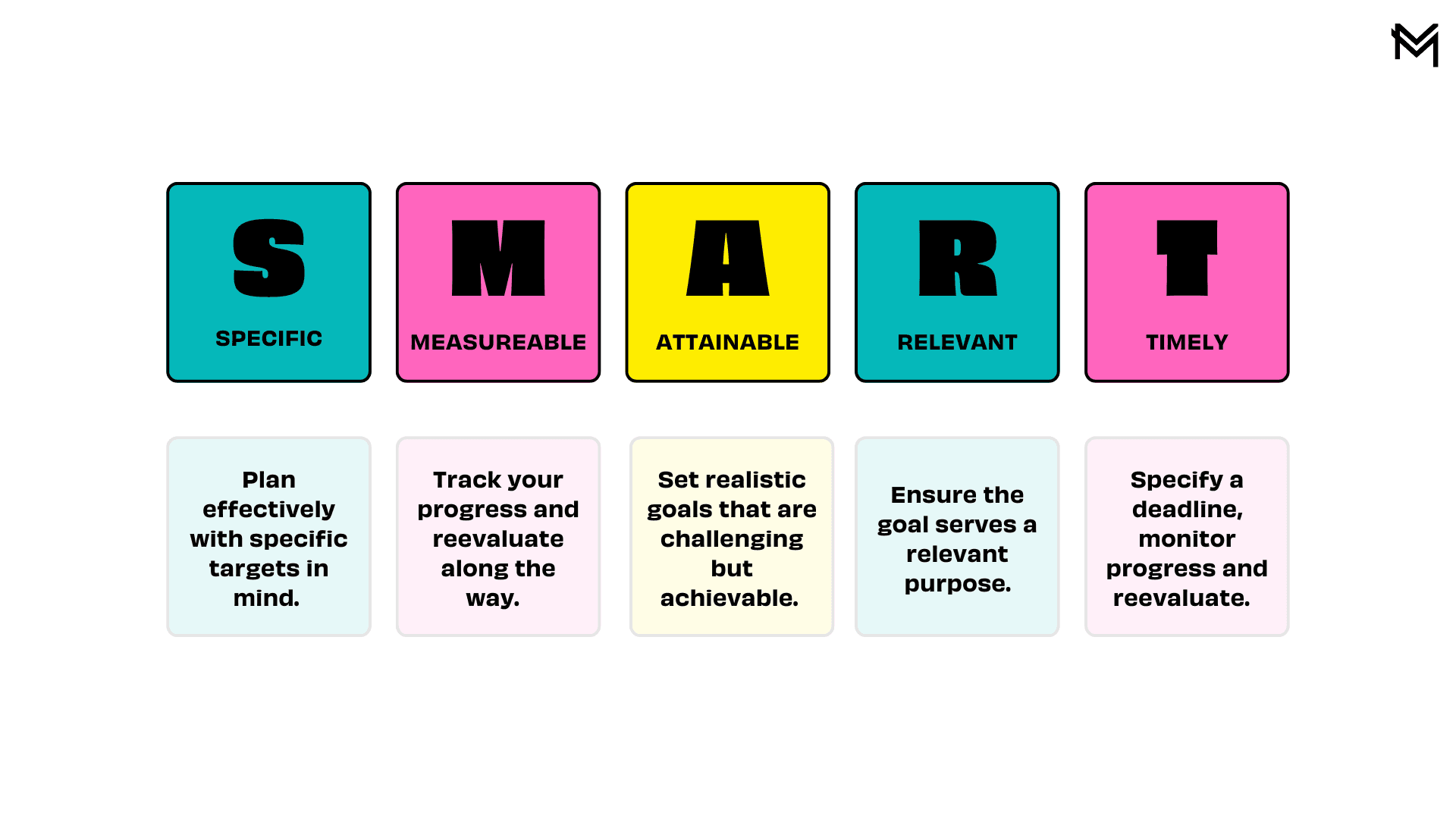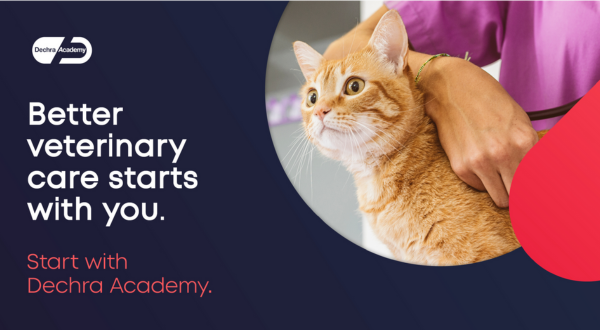want some cookies?
We use cookies to make your browsing experience amazing.

This blog about creating effective learning campaigns was originally published in 2023, but has since been updated with fresh new thinking.
The phrase “learning campaign” is bounced around a lot in our industry, isn’t it? But what is a learning campaign? And how can L&D teams adopt this marketing-based approach to boosting learning engagement? But first things first…
WHAT IS A LEARNING CAMPAIGN?
A learning campaign is a planned set of activities that promote your learning product, programmes and brand. Effectively, this is a way of organising your marketing activities, that ensures you finally ditch the one email, one time, approach to promoting your learning offering. And most importantly, campaigns should be multi-channeled, and reach your learner personas where they’re already hanging out.
So now we know what a learning campaign is, let’s look at how to create one.
6 STEPS TO CREATING A LEARNING CAMPAIGN
The truth is, getting a learning campaign right takes work. You can’t jump straight into coming up with taglines or tactics. You need to have the ground work down too. And these 6 steps do exactly that.

So let’s dig in to each step one-by-one:
STEP 1: GOAL DEFINITION
What are you actually trying to achieve? Is this an awareness campaign? Are you looking to change behaviours? Or are you instigating long-term performance change? Whatever your objective, define it clearly - and make it SMART (Specific, Measurable, Achievable, Relevant, and Time-bound). The ‘A’ is very important for L&D teams – make your objective achievable! We all want to achieve a lot, but we need to stay within our means,otherwise you’ll actually just make more work for yourself. And ain’t nobody got the time for that…

And then you need to benchmark. Where are you now? What data do you have to prove that? Dig out your completion rates, active user rates, and any other tangible data you might have – and take a snapshot. This will enable you to demonstrate your impact to the wider business, and we all know stakeholders love data!
STEP 2: AUDIENCE IDENTIFICATION
To create a successful learning campaign you must know exactly who you’re targeting, otherwise how will you ensure your message resonates? Sit back and take the time to understand your audience, if you have learner personas – choose one of them! (Or all of them, the choice is yours!) But if you do not have your personas defined, ask yourself these 3 questions about your audience:
What are their emotional drivers?
What are their needs and wants?
What is going to resonate with them?
You may not have the tech available to report on the granularity of their behaviour but you do have a lot of information about your people and you must use this to your advantage. Heck, you could even talk to them directly. (Crazy idea, right?!)
STEP 3: CHOOSE YOUR LEARNING CAMPAIGN CHANNELS
When it comes to marketing for L&D, channel selection is often forgotten. And that’s because L&D teams are typically laser focused on emails. But the truth is there are so many other channels at our disposal that we should be using. And to select them, we need to focus on audience behaviour. Using a decision-making journey, you should be able to identify what your audience are doing throughout the learning experience. For example you should be able to pinpoint:
Where are they hanging out?
What platforms do they access often?
What are their thoughts and feelings at each stage?
Using this information, identify the channels you can use to most effectively target your audience. If they tell you they spend a lot of time on the intranet – that’s a channel for you! If they tell you they never, ever go to the office – then maybe posters aren’t a good choice. Make an educated guess at the channels that will work best for your campaign goal and your audience’s needs (and then test to see if it works!)
STEP 4: DEFINE YOUR CAMPAIGN HOOK
Think of a famous advertising campaign that you love. What unites every element of the campaign? Typically it’s a hook. It’s Coca-Cola’s “Share a coke with…”, McDonald’s raising eyebrows, or Old Spice’s “The man your man could smell like”.
It’s time to come up with a hook like this for your campaign too. The hook we used in our campaign with Dechra Academy was “Better veterinary care starts with you. Start with Dechra Academy”.

This is not a step to rush – your hook is the lynchpin to your entire learning campaign and needs careful consideration. My top tips for devising a great hook are:
Think carefully about the ‘what’s in it for me?’ Your audience are self-indulgent, so make sure the WIIFM is super clear in your hook.
Write down absolutely every hook that comes to mind. And I really mean everything. No matter how rubbish you think it might be, it’ll help you get closer to a clearer, engaging hook (I promise!)
Leverage the best copywriting techniques. Think alliteration, rhyming, repetition and so on.
Oh and while we’re talking about hooks – avoid design by committee. You’ve heard the saying ‘too many cooks spoil the broth’ right? Well that is absolutely true for campaign hooks. Don’t get bogged down in debating whether ‘start now’ is better than ‘act now’ with a whole host of your colleagues. It’s a sure-fire way to end up with a snooze-fest tagline that doesn’t hook anybody at all.
STEP 5: PLAN & EXECUTE
Ultimately there is no point coming up with an incredible campaign if you can’t execute it. So ask yourself these 4 questions:
What are your pressing deadlines?
What skills do you already have in-house that you can leverage?
Do you have a budget available for things like graphic design, print or events?
How long does your campaign need to last? (And we promise you, it’s longer than a few weeks – minimum of 3 months, please!)
Understanding what you already have and what you need is going to make your life a lot easier and your campaign more realistic. So work this out before diving head-first into development.
Then it’s time to build out a plan for your learning campaign. At this stage you need to think about when and where you’re going to interact with your audience over a set amount of time. My top tip is to plan as much as you can in advance so you can see a clear structure of your campaign over time. Then, add in the time for development of your assets (and approvals of them!)
Now you have a holistic view of your entire campaign, and you’re ready to go!
Looking for a template? Don’t reinvent the wheel! There’s loads of marketing campaign templates on Google that’ll help you.
STEP 6: TEST AND OPTIMISE
The reality is there is no way of telling if a campaign will be effective before launch. Annoying right? But unfortunately that's the reality as marketers. So the only thing to do is roll out our campaign and then test, test, and test some more!
If your tests are showing something needs to be tweaked – do it! Iteration is a huge part of successful marketing campaigns and will make your campaign as effective as possible.
The truth is, your first campaign won’t be perfect, but the more and more campaigns you run, the more you’ll learn about what works for your audience. So test, iterate and learn!
TOP TIPS FOR SUCCESSFUL LEARNING CAMPAIGNS
With all of this in mind, you’re probably raring to go and wanting to create your first campaign. But before you get started, here are our top tips:
Pre-launch marketing is critical. Don’t start your comms on the day you want your audience to take action!
Campaigns should span months, not days or weeks.
Consistency is key.
Craft a compelling hook.
Benchmark today - so you can see how far you’ve come!
Don’t be afraid to fail.
So, now you know how to create an effective and maybe even award-winning learning campaign, what's stopping you? Get planning and creating, and boost your learner engagement once and for all.










